Creating a Chicken-Friendly Garden: Tips and Benefits
Amelia Quinn2023-10-12T09:17:28-06:00Having a chicken-friendly garden can be beneficial for both your chickens and your plants. By designing a garden with your chickens in mind, chickens can help fertilize the soil and control pests in a natural way.
Choosing Plants that are Safe for Chickens
When setting up a chicken-friendly garden, it’s important to select plants that will not harm your chickens. Here are some top picks for chicken-friendly foliage:
Clovers
Clovers like white, red, and alsike are very chicken-friendly as they provide both forage and ground cover. Chickens love clover’s sweet taste and will slowly graze on patches.
Alfalfa
Alfalfa is a superfood plant loaded with protein, vitamins, and minerals to support chicken health. It’s one of their favorite treats plus it boosts egg production.
Wormwood
The strong aromatic properties of wormwood make it undesirable for chickens to consume in large quantities. However, they enjoy pecking at it for natural deworming benefits.
Dandelions
These sunny flowers are nutritional goldmines packed with vitamins A, C, K, and calcium. Chickens eagerly munch on dandelion greens and blossoms as snacks throughout the seasons.
Considering Your Chicken’s Preferences
Every flock has unique tastes – observe which plants yours are drawn to most. Some prefer certain foliage over grains or seeds. Pay attention to guarantee flock happiness in the garden layout.
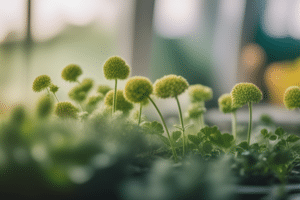
Garden Layout and Design
When designing the space for your chicken garden, it’s important to integrate features that will keep your chickens safe and comfortable while allowing them to access the garden plants. An ideal design would include:
- A sturdy, secure chicken coop located in a dry area, out of direct sunlight. This provides shelter from environmental elements and predators.
- An attached, secured chicken run that allows controlled access to the garden. The run should be large enough for your flock to exercise while being protected.
- Fencing around the entire perimeter to clearly define the garden boundaries. Chickens will forage more contentedly if they don’t feel at risk of straying from safe areas.
- Planting beds and garden areas positioned near the chicken run, so your flock can easily access crops, weeds, and bugs without completely free range over the entire space.
Integrating these elements into your chicken garden layout will create a functional, secure design that works for both your poultry and planting needs. Consider making adjustments over time based on how your flock behaves and what grows best.
Maintaining a Chicken-Friendly Garden
While integrating chickens into the garden does require some extra work, the rewards of a natural, low-maintenance ecosystem can make it worthwhile. Here are a few keys to maintaining a harmonious chicken garden setting:
- Secure the perimeter by routinely checking fences and making needed repairs. Protecting your flock from predators is a top priority.
- Provide dust bathing areas for the chickens with dry sand or dirt. This important natural behavior keeps their feathers and skin clean.
- Plant a variety of chicken-friendly foliage that provides continual foraging as well as cover crops for warmer months. Companion planting and rotation support this.
- Perform regular clean-up by collecting eggs daily, storing manure for compost, and disinfecting coops periodically. Proper sanitation prevents disease issues.
- Monitor chickens’ health and inspect garden plants weekly for signs of pests or sicknesses. Quick response is key to Addressing problems early.
- Prune plants and harvest vegetable tails for your kitchen while leaving some windfalls in place for the chickens to eat.
With a bit of focused attention each week, you can reap the rewards of a low-maintenance, symbiotic chicken and garden system
Safety Measures for Chickens
In addition to proper fencing and housing, it’s important to take some safety precautions to protect your chickens while they forage in the garden:
- Install secure fencing around the perimeter to keep predators like hawks, coyotes, or foxes out of the garden space. Tall, strong fences will give your flock peace of mind.
- Monitor chickens closely as they forage and remove any toxic plants from the garden. Common toxic plants to avoid include rhododendron, azalea, yew, and lily plants which can sicken or even kill chickens if ingested.
- Provide a constant supply of clean, fresh water for your chickens every day in the garden and coop. Dehydration can rapidly become a health issue, especially on hot days.
- Check chickens often for signs of illness, injuries, or bullying behaviors from other flock members. Isolate any chickens displaying abnormal symptoms right away.
Taking some basic safety precautions will help your chickens enjoy the benefits of free-range gardening without putting their health at unnecessary risk from predators, toxins, or other dangers.

Benefits to Chickens and Garden
By designing your garden to be chicken-friendly, both your flock and plants can benefit in many ways:
- Natural pest control – As chickens forage, they will consume common garden pests like bugs, beetles, worms, and slugs without chemicals. This makes your produce healthier for consumption.
- Enhanced fertilization – As chickens scratch and peck, they till the soil and disperse manure/feathers across the garden beds. This provides natural nutrition to grow thriving plants.
- Increased biodiversity – Chickens stir up the topsoil and spread seeds from one area to another. This allows a variety of plants to coexist together harmoniously.
- Contentment for chickens – Foraging and dust-bathing in organic matter enriches natural behaviors that keep chickens joyful and healthy.
Gardening Practices for a Chicken-Friendly Garden
To fully utilize the benefits of an integrated chicken and garden system, certain practices should be adopted:
- Use natural, chicken-safe fertilizers derived from their manure or garden composts. This avoids harmful chemical residues.
- Allow supervised chicken foraging as a method of mechanical pest control. Chickens will eat many pests without harming plants.
- Employ a system of plant rotation so chickens always have access to a diversity of edibles as seasons change. This ensures good nutrition.
- Move the chicken coop regularly using a chicken tractor system to practice chicken-powered composting. Their scratching aerates heaps.
- Collect chicken manure for use in making nutrient-dense compost or as a top-dressing fertilizer for plants.
Proper gardening practices optimize the symbiotic relationship between chickens and your homegrown produce. Both chickens and plants will thrive.
Conclusion
Caring for chickens integrated into the garden takes some regular effort. However, it cultivates a sustainable ecosystem with profound benefits. By vigilantly securing fences from predators and providing dust baths and companion crops, your flock and garden plants will nourish each other naturally over the long term.
Performing routine clean-up and plant maintenance as described ensures the harmonious relationship remains productive and rewarding throughout each season. Embracing the small but important tasks involved in upkeep keeps chickens and gardeners thriving together.
With a little focused attention each week dedicated to maintenance, you can proudly sustain a thriving chicken garden environment for many years of enjoyment. The effort required maintains a balance that benefits both chickens foraging freely and gardeners harvesting healthy, chemical-free produce.
About the Author:
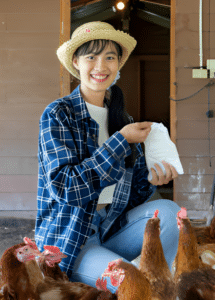
Amelia Quinn
Hello, I’m Amelia Quinn. I grew up on a farm, caring for animals and crops. Now, I’m eager to connect with fellow farmers and learn from our community. Let’s grow together!
***
Want help finding plants that will thrive in your chicken-friendly garden? Take the guesswork out of gardening — PlantTAGG is available for Apple and for Google Play. The app is free to download and use – try it today!


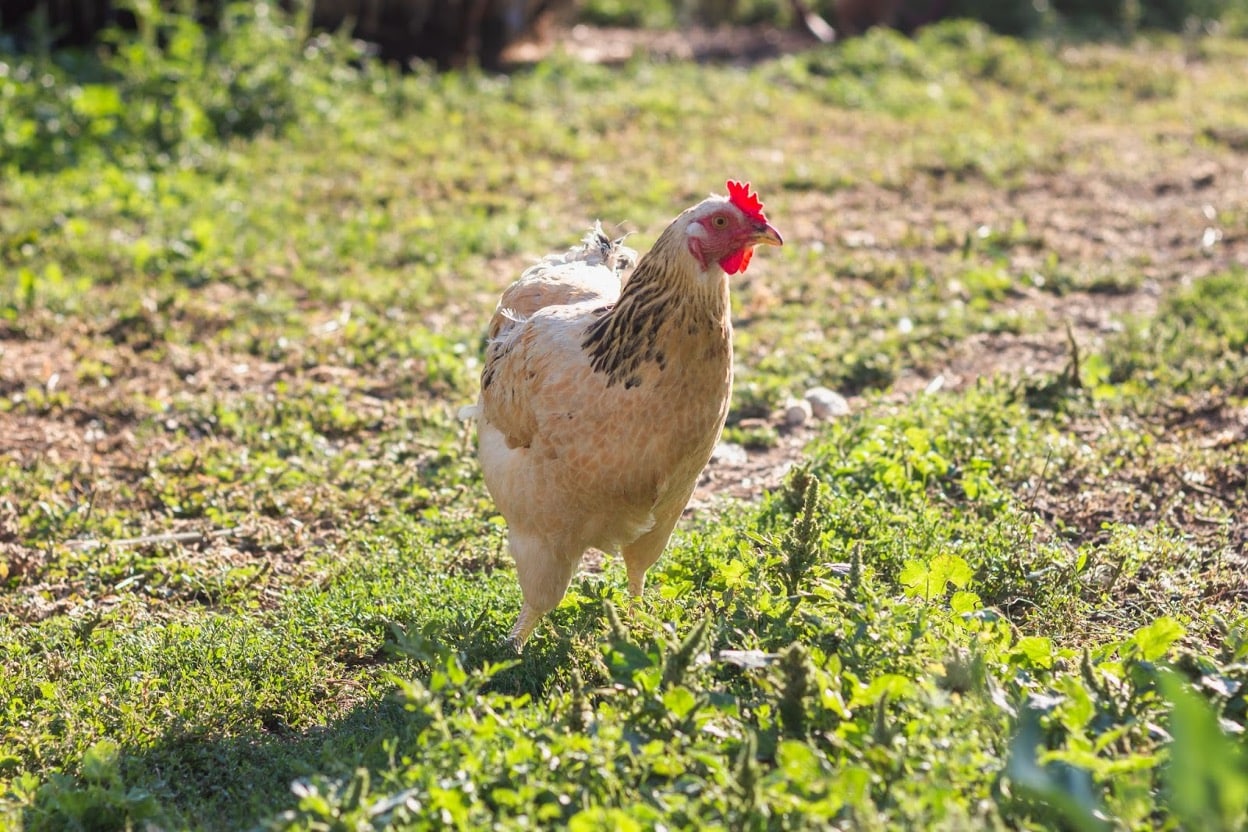
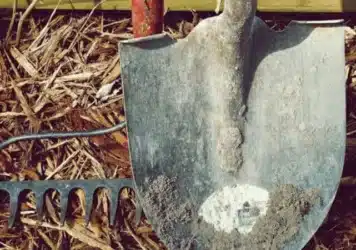
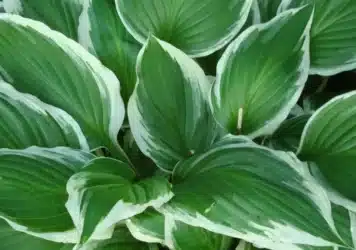
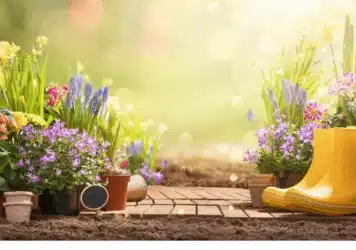
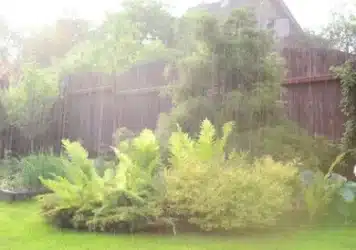
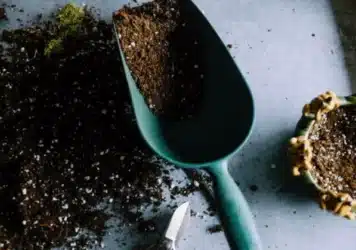



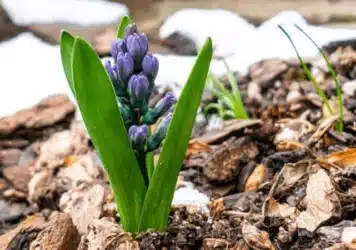

Leave a Reply